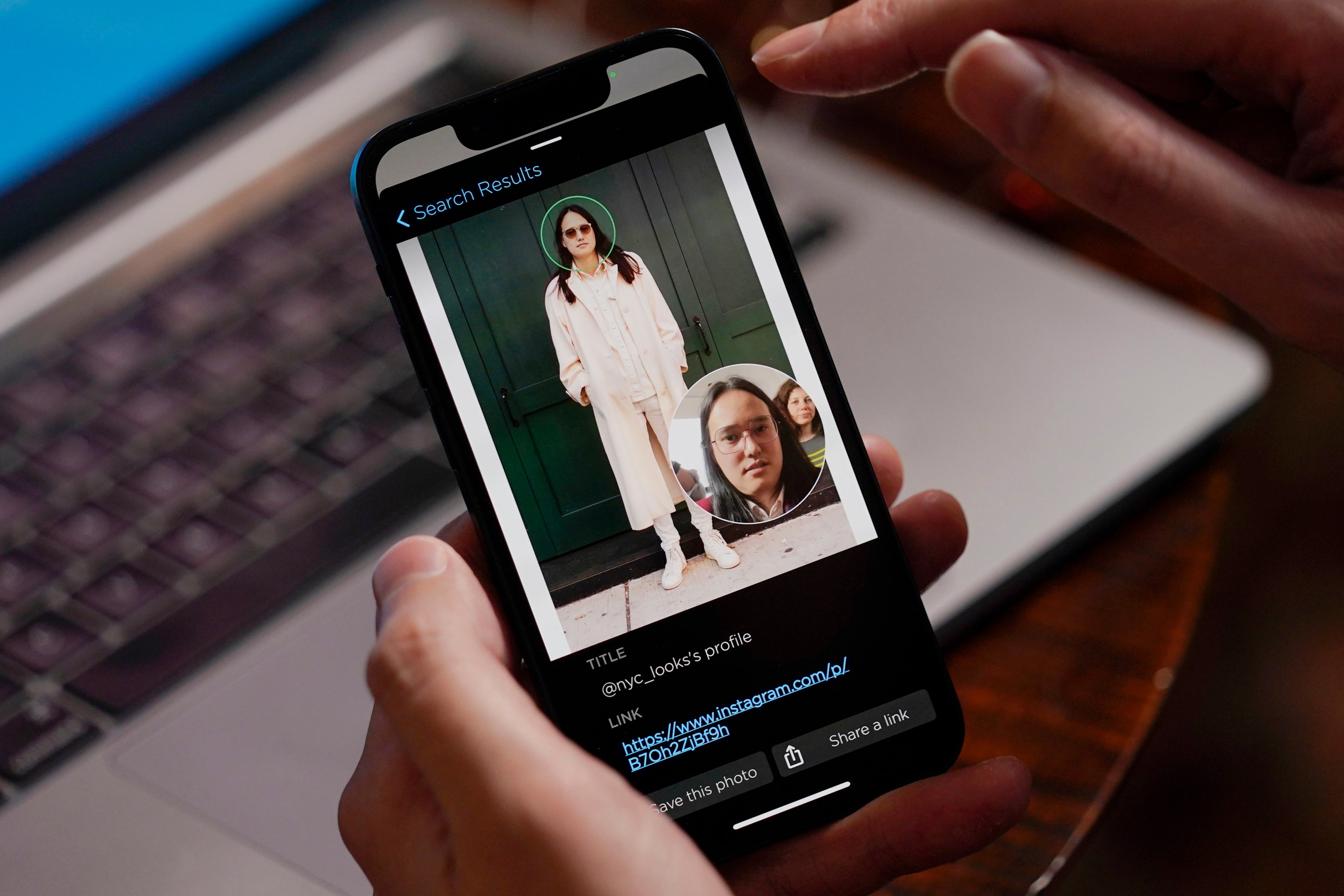Face-scanner Clearview agrees to limits in court settlement
Facial recognition startup Clearview AI has agreed to restrict the use of its massive collection of face images to settle allegations that it collected people’s photos without their consent

Your support helps us to tell the story
From reproductive rights to climate change to Big Tech, The Independent is on the ground when the story is developing. Whether it's investigating the financials of Elon Musk's pro-Trump PAC or producing our latest documentary, 'The A Word', which shines a light on the American women fighting for reproductive rights, we know how important it is to parse out the facts from the messaging.
At such a critical moment in US history, we need reporters on the ground. Your donation allows us to keep sending journalists to speak to both sides of the story.
The Independent is trusted by Americans across the entire political spectrum. And unlike many other quality news outlets, we choose not to lock Americans out of our reporting and analysis with paywalls. We believe quality journalism should be available to everyone, paid for by those who can afford it.
Your support makes all the difference.Facial recognition startup Clearview AI has agreed to restrict the use of its massive collection of face images to settle allegations that it collected people's photos without their consent.
The company in a legal filing Monday agreed to permanently stop selling access to its face database to private businesses or individuals around the U.S., putting a limit on what it can do with its ever-growing trove of billions of images pulled from social media and elsewhere on the internet.
The settlement — which must be approved by a federal judge in Chicago — will end a 2-year-old lawsuit brought by the American Civil Liberties Union and other groups over alleged violations of an Illinois digital privacy law.
Clearview is also agreeing to stop making its database available to Illinois state government and local police departments for five years. The New York-based company will continue offering its services to federal agencies, such as U.S. Immigration and Customs Enforcement, and to other law enforcement agencies and government contractors outside of Illinois.
“This is a huge win," said Linda Xóchitl Tortolero, president of Chicago-based Mujeres Latinas en Acción, which works with survivors of gender-based violence and was a plaintiff in the case along with the ACLU and other groups.
Among the concerns raised by Tortolero's group was that photos posted on social media sites such as Facebook or Instagram — and turned into a “faceprint” by Clearview — could end up being used by stalkers, ex-partners or predatory companies to track a person's whereabouts and social activity.
Illinois’ Biometric Information Privacy Act allows consumers to sue companies that don’t get permission before harvesting data such as faces and fingerprints. Another privacy lawsuit over the same Illinois law led Facebook last year to agree to pay $650 million to settle allegations it used photo face-tagging and other biometric data without the permission of its users.
“It shows we can fight these companies when they're taking these kinds of actions," Tortolero said of the Clearview settlement Monday. “It also highlights the fact that there a many ways that social media — and the technology companies that collect this kind of information — can be harmful to Americans."
The settlement document says Clearview continues to deny and dispute the claims brought by the ACLU and other plaintiffs. But even before Monday's settlement, the case has been curtailing some of the company's controversial business practices.
Clearview AI co-founder and CEO Hoan Ton-That told The Associated Press in April that the company was preparing to launch a new “consent-based” business product to compete with the likes of Amazon and Microsoft in verifying people’s identity using facial recognition.
The new venture would use Clearview's algorithms to verify a person’s face, but would not involve its trove of some 20 billion images, which Ton-That said is now reserved for law enforcement use. That's a shift from earlier in Clearview's business history when it had pitched the technology for a variety of commercial uses.
Regulators from Australia to Canada, France and Italy have taken measures to try to stop Clearview from pulling people’s faces into its facial recognition engine without their consent. So have tech giants such as Google and Facebook. A group of U.S. lawmakers earlier this year warned that “Clearview AI’s technology could eliminate public anonymity in the United States.”